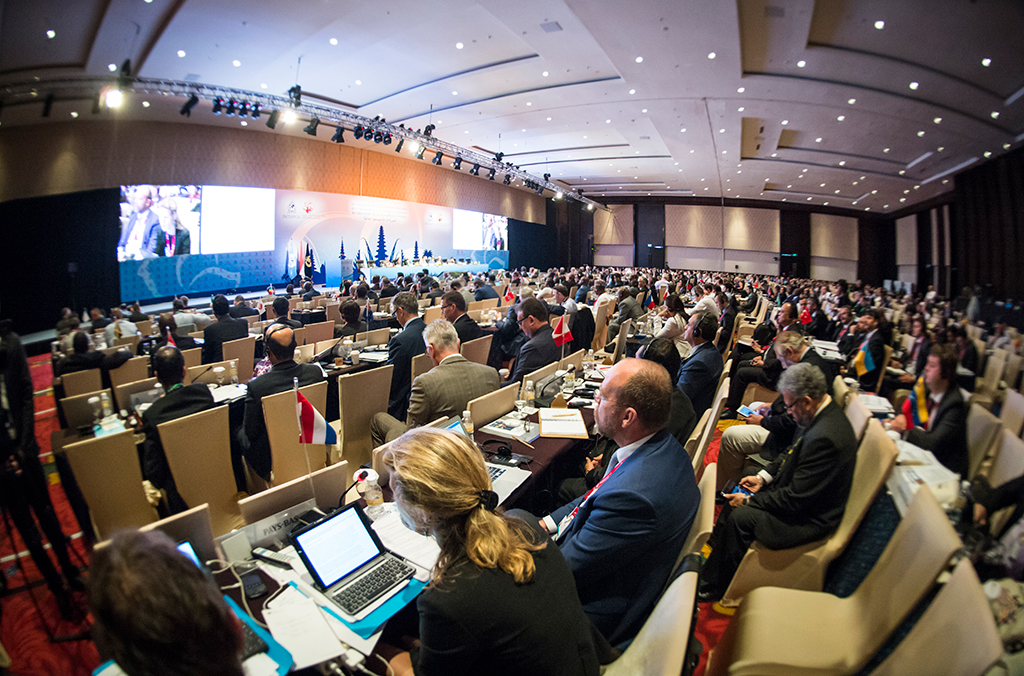BALI, Indonesia – New measures to strengthen the integrity of INTERPOL’s information processing mechanisms, including for Red Notices and diffusions, have been endorsed in a resolution approved by the Organization’s General Assembly.
The resolution is based on the report produced by a specialized working group which conducted a comprehensive review of all phases of data processing, including by National Central Bureaus (NCBs), INTERPOL’s General Secretariat and the Commission for the Control of INTERPOL’s Files (CCF).
Among the measures is the adoption of a new Statute of the CCF as part of a reform package to enhance all INTERPOL supervisory mechanisms.
Under the Statute the CCF will be restructured into two Chambers:
- The Supervisory and Advisory Chamber to ensure the processing of personal data by the Organization is in compliance with INTERPOL’s rules, and to provide advice on any project, operation, set of rules or other matter involving the processing of personal data in the INTERPOL information system, and;
- A Requests Chamber to examine and decide on requests for access to data, and/or for the correction or deletion of data processed in the INTERPOL information system.
The Statute also provides for the CCF’s decisions to be binding and final on the General Secretariat and the establishment of a clear timetable for their review process and procedures to provide an effective remedy for individuals with regard to data which may be processed about them in the INTERPOL information system.
Amendments to the INTERPOL Rules on the Processing of Data also define more clearly the allocation of responsibilities at all levels involved in information handling – the NCBs for the data they send, the General Secretariat for the use and storage of this information, and member countries’ actions based on data received and for keeping their national databases updated.
INTERPOL Secretary General Jürgen Stock welcomed the changes as an important step in reinforcing the balance between efficient international police cooperation and full compliance with fundamental human rights.
“INTERPOL has a unique and powerful role in global policing, making it essential for us to preserve the highest standards in information sharing,” said Mr Stock.
“These changes are an important step in maintaining the confidence and trust of national law enforcement and wider society in INTERPOL which in turn will enable us to keep our focus on making the world a safer place,” concluded Mr Stock.





